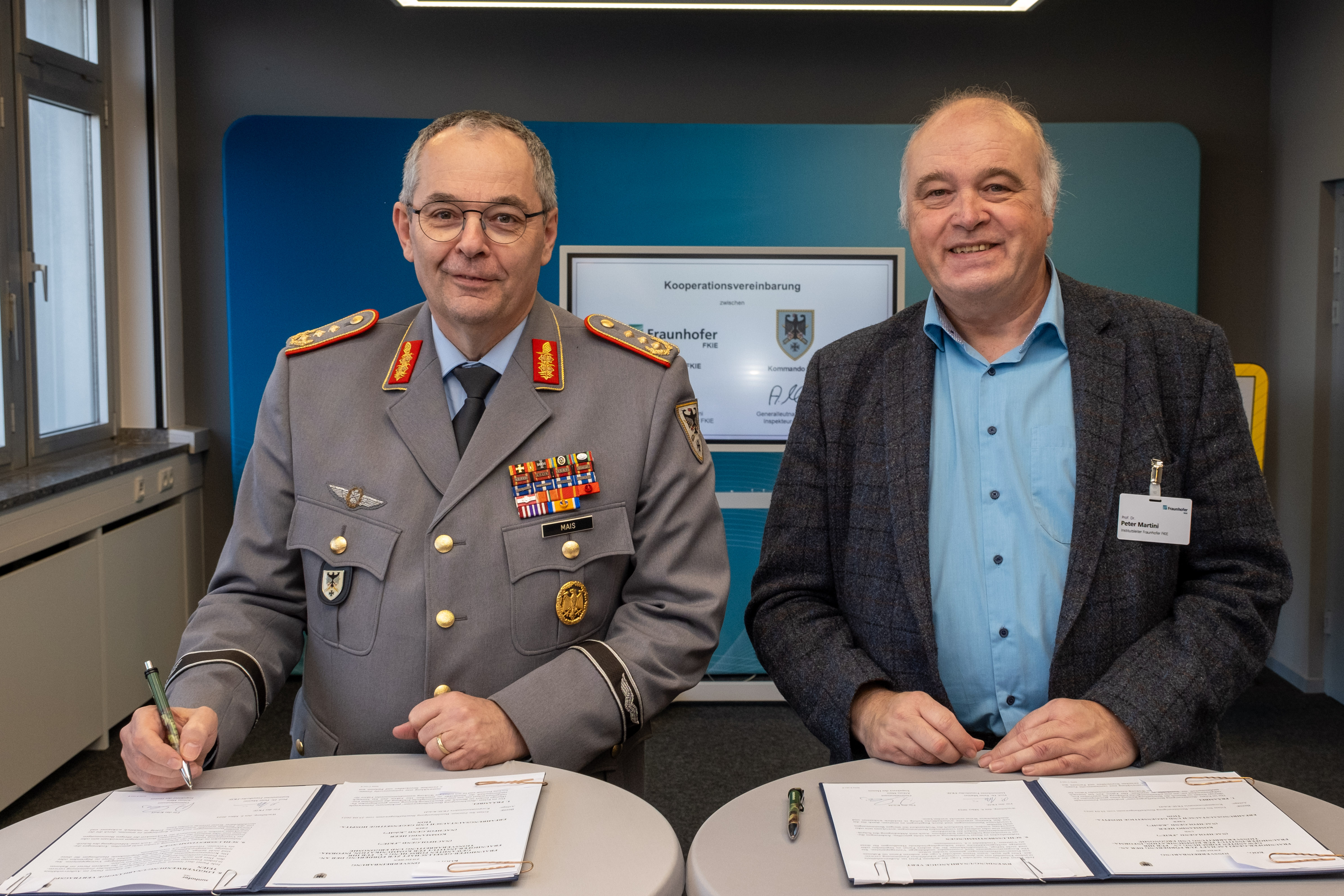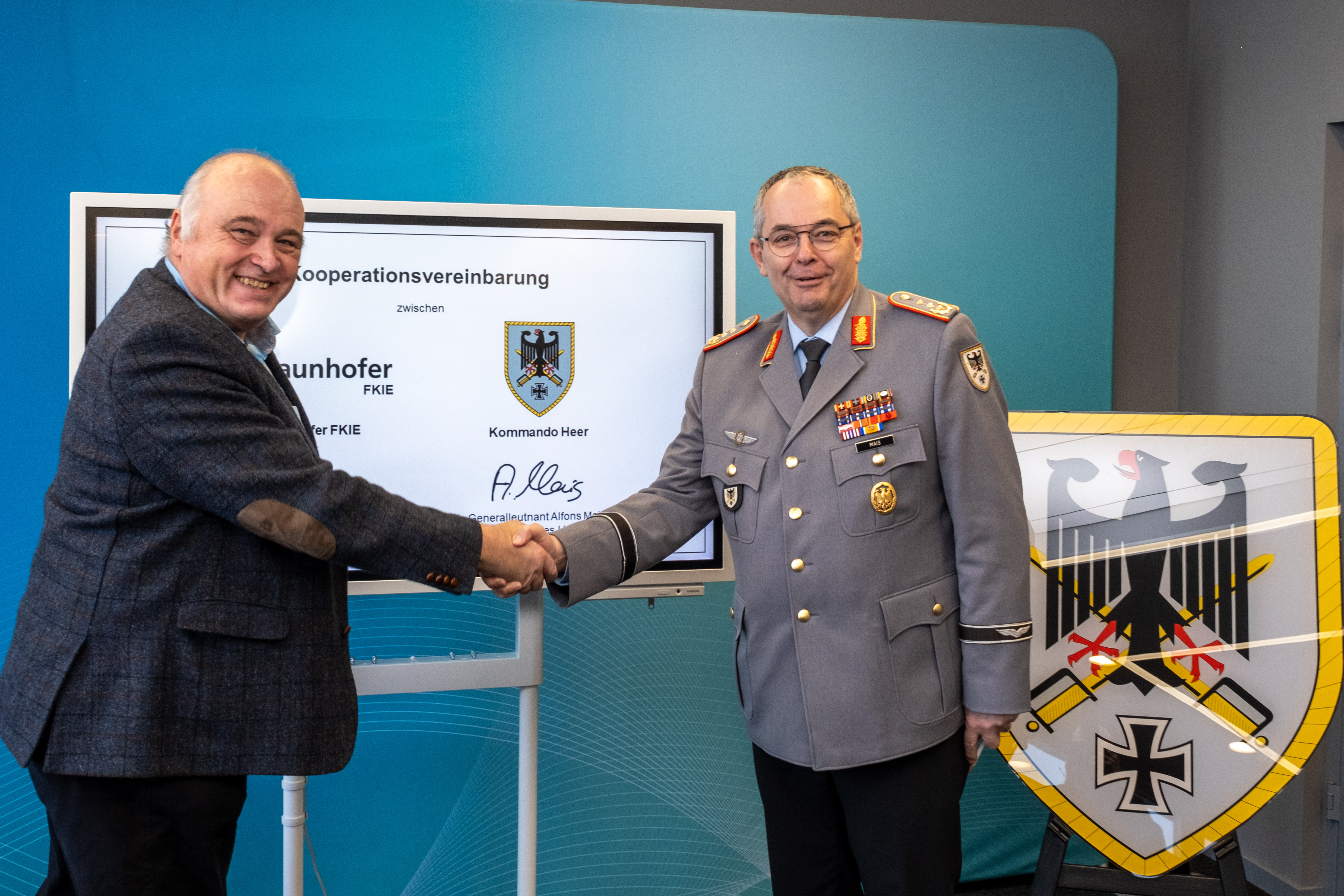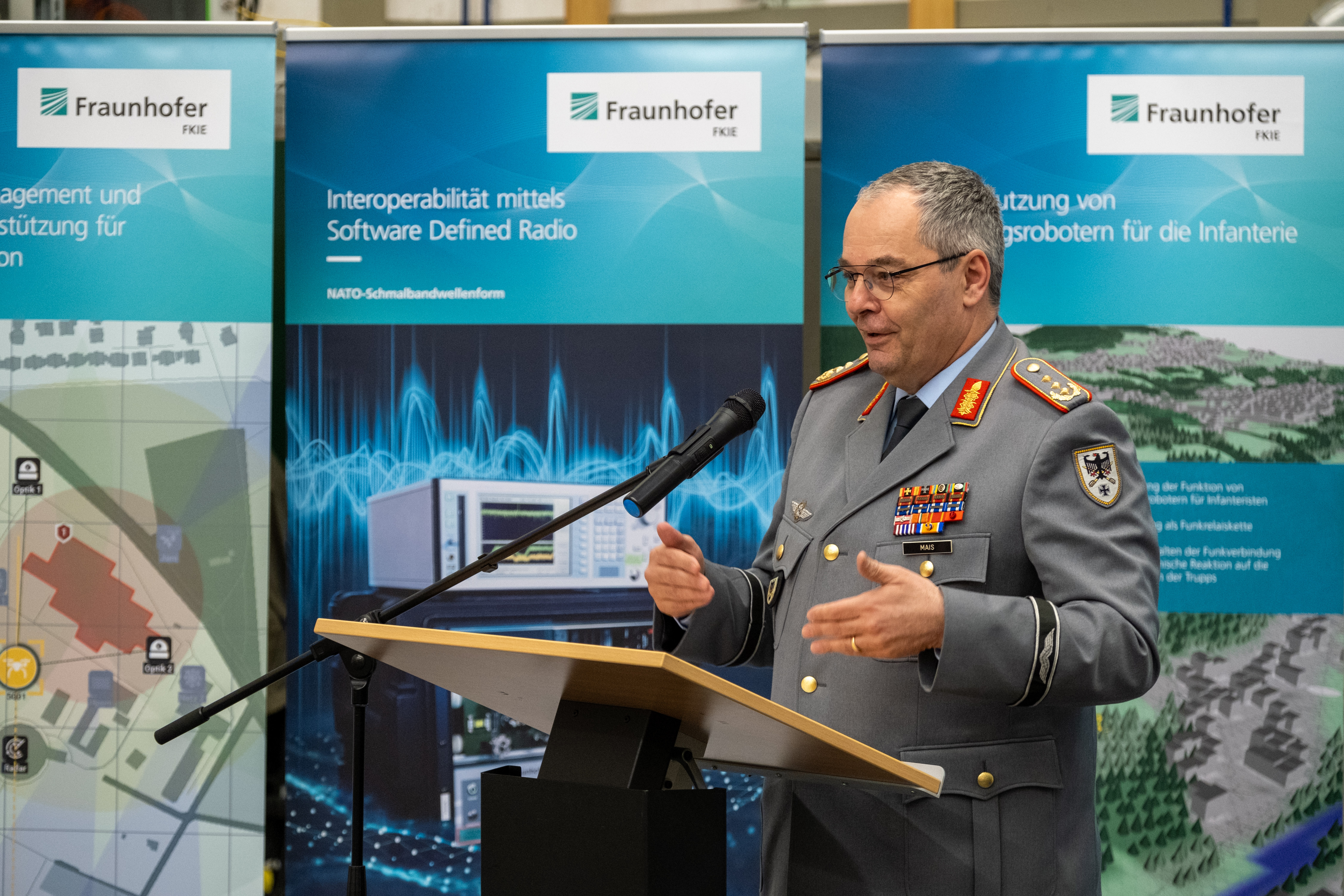“The German army is facing huge challenges”
The German Army Headquarters (KdoH) and the Fraunhofer Institute for Communication, Information Processing and Ergonomics FKIE are intensifying their cooperation. The Chief of the German Army, Lieutenant General Alfons Mais, and institute director Professor Peter Martini signed a cooperation agreement at the FKIE office in Wachtberg, Germany. The partners concluded the agreement in pursuit of a common goal – the continual and, especially, rapid development of new potential and technology for the armed forces.



“I believe that this cooperation will mean that we’re no longer chasing the wave, but surging ahead of it,” Lieutenant General Mais clarified as he signed the agreement. As a long-term partner of the German army and leading research institute for military technology with a focus on applied information and communication technology, Fraunhofer FKIE will now support the forces in designing and implementing urgent technological adaptation and modernisation processes. The partners have initially agreed on six topics for the collaboration, including applied AI and Manned-Unmanned Teaming.
“After the Cold War and 9/11, we’re currently at a third inflection point – and this is a far greater challenge than the previous two,” says Lieutenant General Mais. National and alliance defence is back on the agenda, as well as continued involvement in mandated deployments, which could be required in regions such as the Balkans, after the end of missions in Mali and Afghanistan. Additional tasks include training Ukrainian soldiers and organising material supplies. The current situation presents a real barrage of tasks for the Army Headquarters, with major challenges posed for the armed forces overall, as Lieutenant General Mais explains.
“The aim of the agreement signed today is not to simply start our collaboration with the Army Headquarters but to massively upscale it,” FKIE institute director Professor Peter Martini emphasised. It is intended to create the conditions for even closer collaboration. It is certainly possible that a new sense of reality within society, in the context of current changing times and bearing in mind the requirements for national defence, could help to accelerate critical processes.
The Army Concepts and Capabilities Development Centre (Amt für Heeresentwicklung, AHEntwg) assumes operational responsibility for coordinating the collaboration with Fraunhofer FKIE. Its Head of Office, Brigadier General Heiko Krogmann, marked the signing with a powerful statement which was motivational, but also reflected the high expectations that the German Army Headquarters has for this collaboration: “We look forward to reaping a great deal of benefit from this collaboration.”
